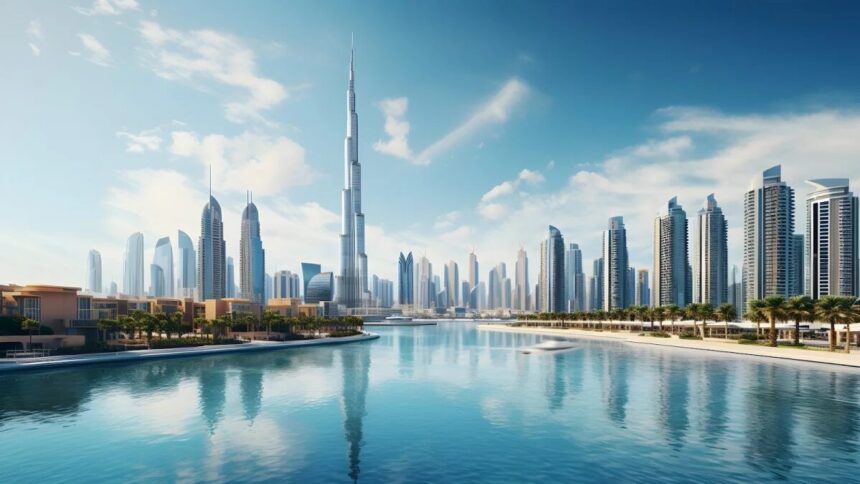Dubai’s rental market is expected to remain stable in the coming years, despite previous surges in property prices and rentals. This outlook comes from a top executive, who attributes the expected stability to increasing demand driven by the city’s growing population and government-backed policies, including new residency schemes and talent attraction initiatives.
Malek Al Malek, the Group CEO of Dubai Holding Asset Management, shared his insights during a recent virtual conference. He highlighted that, after four years of rapid growth, the Dubai real estate market is now stabilizing, with growth rates shifting from double-digit to single-digit figures across most areas of the emirate.
Population Growth and Government Policies Fuel Demand
One of the key factors driving stability in the rental market is the ongoing population growth in city, which has now reached 3.9 million. Al Malek emphasized that despite the influx of new residential units into the market, there remains a strong demand for different types of housing options. This trend can largely be attributed to Dubai’s efforts to diversify its economy and attract talent from across the globe, bolstered by government policies such as the new residency schemes aimed at long-term residents and professionals.
City Holding Asset Management, which oversees a significant portfolio of 35,700 residential units, serves over 140,000 residents across 21 communities. These numbers are a testament to the strong demand for residential properties in the emirate, even amid the supply of new units.
Shift from Rapid Growth to Steady Market Conditions
The market, which has been on a four-year rally in both property prices and rents, is now entering a phase of stabilization. Industry players have noticed that the annual growth rate is slowing down, with most areas across the city shifting from double-digit growth to more sustainable single-digit increases. While some predict a potential 10-20% drop in rents in the near future, many believe this would be a healthy adjustment, bringing prices in line with fair market conditions for residents.
Al Malek remained optimistic about the future, attributing his positive outlook to several structural factors, including ongoing population growth, a robust economic forecast, and continued government efforts to support business diversification, visa reforms, and the ease of doing business in Dubai.
Government Policies and Business Support Continue to Bolster Confidence
The Dubai government’s focus on attracting international talent and promoting long-term residency options is also expected to contribute to sustained demand for residential properties. Al Malek noted that these efforts align with Dubai’s broader strategy to maintain economic growth and keep the residential market buoyant.
“Government policies such as visa schemes and talent attraction efforts create a solid foundation for the residential real estate market. These policies are crucial for maintaining a steady demand for residential properties, which benefits real estate investment trusts (REITs) like ours,” said Al Malek.
Dubai Holding’s announcement of its initial public offering (IPO) for the Dubai Residential REIT, set to list on the Dubai Financial Market, further underscores the confidence in the market. The IPO, which involves the sale of 1.625 billion units (12.5% of the REIT’s total issued capital), marks the first public offering in Dubai this year and is seen as a significant move in the real estate sector.
Read: OPEC+ Output Hikes Trigger Oil Crash, Brent Prices Dive Deep
Resilience Despite Global Economic Volatility
Al Malek also addressed concerns regarding the impact of global economic factors, such as trade wars between major economies, on Dubai’s real estate market. However, he remained confident that Dubai’s property market would remain insulated from such global disruptions. Drawing from over two decades of experience in the industry, he stated, “We’ve seen cycles of volatility come and go, but the Dubai market has remained resilient. Our approach has always been long-term, especially in residential real estate.”
The CEO reassured stakeholders that Dubai Holding’s strategies are aligned with long-term investment goals and that measures have been put in place to ensure the portfolio continues to deliver strong results. “We are confident that the fundamentals behind our residential REIT are positive, and we hope to capitalize on them as we move forward,” he concluded.
In The End
As Dubai continues to evolve into a global hub for business and tourism, the residential rental market is expected to remain stable and attractive for investors and residents alike. With a strong foundation in government policy, population growth, and strategic long-term investments, Dubai’s property market looks poised to maintain its steady trajectory, despite global uncertainties.
In conclusion, while the period of explosive growth in property prices and rents may be behind, Dubai’s real estate market remains one of the most resilient in the region, backed by strong fundamentals and proactive government policies. The future appears bright for both residents and investors, with continued stability at the heart of the rental market’s evolution.
Click here for more business news.






